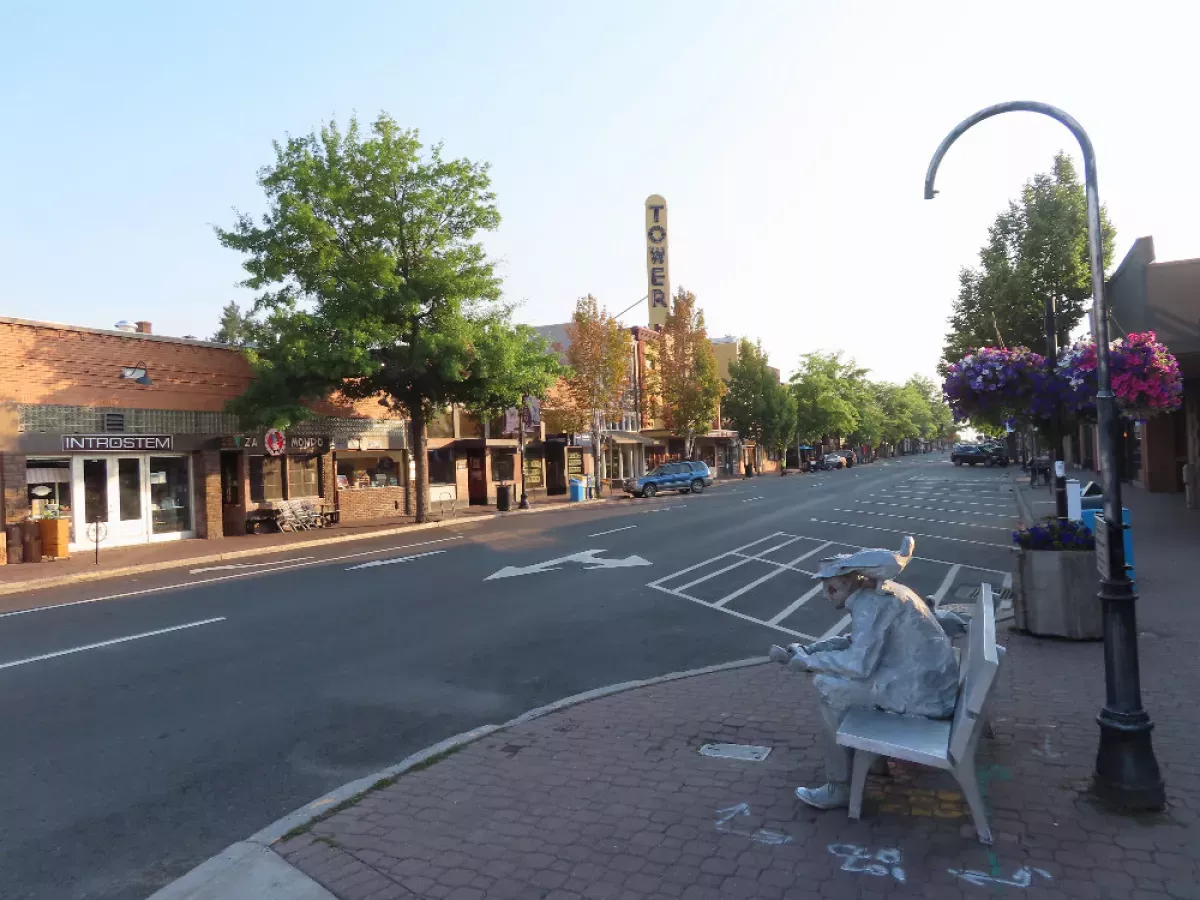Bend, Oregon, the county seat of Deschutes County, is located east of the Cascade Range along the Deschutes River. Known for its outdoor recreational activities, the city offers access to hiking, skiing, kayaking, and other adventures. Bend also features a thriving craft beer scene with numerous breweries attracting both residents and visitors. Once a small lumber town, Bend has experienced significant growth, transforming into a hub for tourism and outdoor enthusiasts.
May 1901: First Commercial Sawmill
In May 1901, the Pilot Butte Development Company built the first commercial sawmill in Bend, which also provided the town's first irrigation system. It was located at the back of what would later become the Pilot Butte Inn.
1903: Steidl and Reed Mill
In 1903, Steidl and Reed established a small, water-powered mill on the Deschutes River near the future Pioneer Park area.
May 28, 1904: Town Platting
On May 28, 1904, the Pilot Butte Development Company platted the town of Bend, following the incorporation vote by its 300 residents.
January 4, 1905: First City Meeting
On January 4, 1905, the newly incorporated city of Bend held its first official meeting and appointed A. H. Goodwillie as its first mayor.
1905: Incorporation of Bend
In 1905, Bend was officially incorporated as a city, marking its transition from a simple crossing point to an established municipality. It began as a logging town.
1910: Creation of Mirror Pond
Mirror Pond was created in 1910 by damming the Deschutes River. This provided a reservoir and a source of energy for the growing city.
1910: Mirror Pond and Power Company Dam
The Bend Water, Light & Power Company dam was constructed on the Deschutes River in 1910, creating Mirror Pond and providing the city's initial electricity.
1916: Deschutes County Formation
In 1916, Deschutes County was established from the western portion of Crook County, and Bend was designated as the county seat.
1926: Pacific Power Ownership
Pacific Power acquired the Bend Water, Light & Power Company dam in 1926.
1929: Council-Manager Government
Bend adopted the council-manager form of government in 1929.
1950: Consolidation of Logging Companies
In 1950, the two main logging companies in Bend consolidated due to dwindling timber resources. This led to a significant economic downturn for the city.
1950: Closure of Shevlin-Hixon Lumber Company
The closure of the Shevlin-Hixon Lumber Company in 1950, after being sold to Brooks-Scanlon, triggered a major economic downturn in Bend, the most severe since the Great Depression.
1968: Passenger Rail Service
The Spokane, Portland, and Seattle Railway provided passenger service from Bend to Wishram, Washington until sometime between 1968 and 1970.
1970: Passenger Rail Service
Passenger rail service between Bend and Wishram, Washington, operated by the Spokane, Portland and Seattle Railway, ceased sometime between 1968 and 1970.
1971: Start of USDA Temperature Recording Period
The USDA began recording temperatures at their weather station in Bend in 1971 to track the city's growing season.
1980: Cascade Cycling Classic
The Cascade Cycling Classic, the nation's longest-running road bicycle stage race, began in Bend in 1980.
1981: Start of 1981-2010 Normals
The period for calculating 1981–2010 climate normals began in Bend, Oregon.
2000: 2000 Census Data
The 2000 census recorded Bend's population as 52,029, with 21,062 households and 13,395 families. The population density was 1,624.8 people per square mile. The racial makeup was 93.98% White and 4.61% Hispanic or Latino.
2000: End of USDA Temperature Recording Period
The USDA weather station in Bend concluded a period of temperature recording in 2000, which showed the last below-freezing temperatures after July 3 and the first below-freezing temperatures before August 31 in half of the years between 1971 and 2000.
2001: Housing Boom and Home Price Appreciation
Between 2001 and 2005, Bend experienced a housing boom, with median home prices rising over 80% due to new residents and favorable lending conditions.
November 2004: Public Transit Measure Fails
A measure to create a transit district was defeated in November 2004.
2004: BendFilm Festival
The independent BendFilm Festival was launched in 2004, contributing to Bend's growing art scene.
2005: Bend's Economic Profile
In 2005, Bend's economy was primarily driven by tourism, healthcare and social services, professional services, wood product manufacturing, and recreation and transportation equipment.
2005: Construction and Real Estate in Bend
In 2005, construction and real estate made up 17.3% of jobs in the Bend MSA, significantly higher than state and national averages.
June 2006: Overpriced Real Estate Market
Money magazine ranked Bend's MSA as the fifth most overpriced real estate market in the US in June 2006.
August 2006: Building Permit Applications Decline
Bend's City Building Division received 826 building permit applications in August 2006.
August 2006: Funding for B.A.T. Secured
Funding for the B.A.T. bus service was secured in August 2006.
September 2006: Overpriced Real Estate Market
Bend's metro area climbed to second place in the list of most overpriced housing markets by September 2006.
September 27, 2006: B.A.T. Bus Service Begins
Bend Area Transit (B.A.T.) bus service started limited operations on September 27, 2006, after securing funding.
2006: Housing Downturn Impacts Bend
Compared to 2006, homelessness increased by 66% to 2,237 people in the tri-county area (Deschutes, Crook, and Jefferson counties) due to the 2008-2009 housing downturn.
2006: Median Income and Poverty Data
In 2006, the median household income in Bend was $40,857, and the median income for a family of four was $58,800. Approximately 6.9% of families and 10.5% of the population were below the poverty line.
May 2007: Peak Home Prices
Single-family home prices in Bend peaked at $396,000 in May 2007.
June 2007: Overpriced Real Estate Market
Bend was named the most overpriced housing market in America in June 2007.
August 2007: Building Permit Applications Decline
Building permit applications decreased by 35% to 533 in August 2007, suggesting a slowdown in construction.
2007: Bus Service Issues and Litigation
During the summer of 2007, Bend experienced problems with its newly acquired buses, with none in operation and ongoing litigation.
2008: Major Sporting Events
Bend hosted the USA Winter Triathlon National Championships in 2008.
2008: Housing Downturn Impacts Bend
The 2008-2009 housing downturn had a significant negative impact on Bend's housing market and overall economy.
March 2009: Home Prices Decline and Unemployment Rises
Home prices dropped to $221,000 by March 2009, a 40% decrease. Deschutes County's unemployment rate reached 12.6% in April 2009.
April 2009: Home Prices Decline and Unemployment Rises
The unemployment rate in Deschutes County reached 12.6% in April 2009 as a result of the housing downturn. Homelessness also rose by 66% in the tri-county area compared to 2006.
2009: Major Sporting Events
Bend hosted several national championships in 2009, including the USA Winter Triathlon, XTERRA Trail Running, and USA Cycling Elite Road National Championships.
2009: Largest Price Drop
Bend saw the greatest decline in housing prices from Q1 2009 to Q1 2010, which was highlighted in a report released in May 2010 by the Federal Housing and Finance Agency.
May 2010: Largest Price Drop
In May 2010, Bend reported the nation's largest price drop of 23% from the first quarter of 2009 to the first quarter of 2010, according to the Federal Housing and Finance Agency.
2010: 2010 Census Data
According to the 2010 census, Bend had a population of 76,639, with 31,790 households and 19,779 families. The racial makeup was 91.3% White, and 8.2% Hispanic or Latino.
2010: Major Sporting Events
The United States National Cyclo-cross Championships were held in Bend in 2010.
2010: End of 1981-2010 Normals
The period for calculating 1981–2010 climate normals ended, establishing average freezing temperature window from September 13 through June 19 in Bend.
2011: Tourism Demographics and Economic Impact
In 2011, families and couples without children represented the largest segments of Bend's tourism demographic (35% and 24%, respectively). Tourism contributed $570 million to the economy and employed 16% of the workforce.
2013: Major Sporting Events
Bend hosted the USA Cross Country Championships in 2013.
2015: Major Sporting Events
Bend hosted the USA Cross Country Championships in 2015.
2015: Tourism Revenue
In the first quarter of fiscal year 2015, Bend generated $2,221,610 in transient room tax revenue, highlighting the importance of tourism to the city's economy.
2016: Transportation System Plan
Bend adopted a 20-year Transportation System Plan in 2016, aiming to create a sustainable and equitable transportation future for the community.
2016: Transportation System Plan and Waste Management
Bend's 20-year Transportation System Plan, initiated in 2016, focuses on improving transportation and waste management practices, with businesses working to minimize the environmental impact of cars.
2016: Major Sporting Events
The 2016 USA Cross Country Championships were held in Bend.
2017: Worthy Brewing Observatory
Worthy Brewing in Bend opened an observatory equipped with a 16-inch Ritchey–Chrétien telescope in 2017.
2018: Breweries and Cider Companies
As of 2018, Bend boasted 23 breweries and 4 hard cider companies, showcasing its thriving craft beverage scene.
July 2019: Ride Bend Study
Oregon State University-Cascades launched Ride Bend in July 2019, a ride-sharing study using on-demand electric vans in west Bend.
2019: Shared-Ride Van Experiment
Bend began testing a shared-ride van service in 2019 to replace a cancelled bus route.
2019: Last Blockbuster
In 2019, Bend became home to the last officially licensed Blockbuster Video in the world.
2019: Climbing Championships
In 2019, Bend hosted USA Climbing's National Bouldering Championships for both professional and youth climbers.
2019: Cascade Cycling Classic Ends
The Cascade Cycling Classic, held in Bend since 1980, ended in 2019.
March 2020: Ride Bend Study Ends
The Ride Bend study, which explored on-demand ride sharing, concluded in March 2020.
2020: Climbing Championships
Bend hosted the USA Climbing National Bouldering Championships again in 2020.
2020: 2020 Census Demographics
The 2020 census detailed Bend's demographics, including 99,178 residents, 40,969 households, and 25,421 families. Racial makeup was primarily White (84.5%), with 9.2% Hispanic or Latino residents. Age demographics showed 20.8% under 18, 5.1% under 5, and 17% aged 65 or older.
2020: 2020 Census
The 2020 census recorded Bend's population as 99,178, making it the sixth most populous city in Oregon. The Bend metropolitan statistical area had a population of 247,493, the fifth largest in the state.
April 2021: Room Tax Allocation for Trail Maintenance
In April 2021, the Bend City Council decided to allocate a portion of the $3 million room tax revenue towards the upkeep of city trails.
November 21, 2021: Tourism Economic Impact
On November 21, 2021, Brauns reported on 2019 data showing tourism's substantial impact on Bend's economy, with the industry employing 10,000 people and generating over $1 billion in revenue.
August 28, 2022: Safeway Shooting
On August 28, 2022, a mass shooting at a Safeway store in Bend resulted in the deaths of two senior citizens, one of whom was a store employee. Two others were injured before the gunman took his own life.
2023: 2023 Population Estimate
In 2023, the U.S. Census Bureau estimated the combined population of the Bend-Prineville CSA (Bend metropolitan area and Prineville micropolitan area) at 260,919.
2023: Largest Employers in Bend
The 2023 Annual Comprehensive Financial Report lists the largest employers within Bend.
Mentioned in this timeline
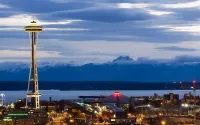
Seattle is the most populous city in Washington state and...

Vans is an American manufacturer of skateboarding shoes apparel and...
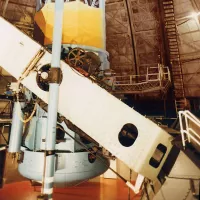
A telescope is an instrument used to observe distant objects...
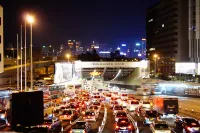
Travel involves the movement of people between geographical locations using...

September is the ninth month of the year in the...
Oregon is a state in the Pacific Northwest region of...
Trending
9 months ago American Idol Season 23 Finale: Top 3 Compete, John Foster's Journey and Voting Guide

8 months ago Pascal Siakam Shines in NBA Finals, Inspiring Africa and Sharing Lessons.
9 months ago Dengue outbreak in Cook Islands prompts agency response and community clean-ups.

6 months ago Kelly Clarkson's New Bob Haircut and Return to The Voice Season 29!
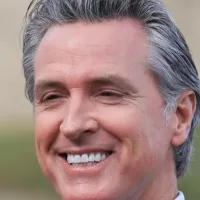
9 months ago Gavin Newsom faces challenges in final term amid budget concerns and 2028 ambitions.
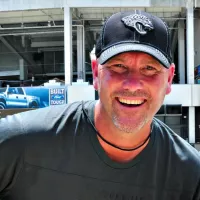
Gus Bradley is an American football coach currently serving as the defensive coordinator for the Indianapolis Colts He gained recognition...
Popular

Thomas Douglas Homan is an American law enforcement officer who...

William Franklin Graham III commonly known as Franklin Graham is...

Melania Trump a Slovenian-American former model has served as First...

Jupiter is the fifth and largest planet from the Sun...

XXXTentacion born Jahseh Dwayne Ricardo Onfroy was a controversial yet...

Instagram is a photo and video-sharing social networking service owned...
